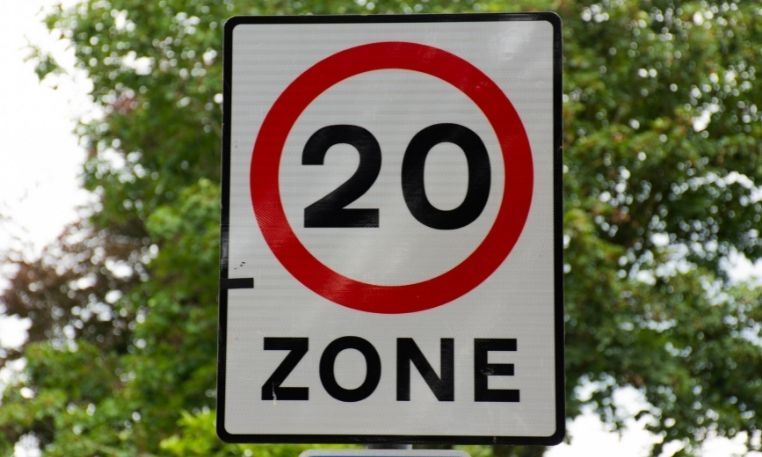CAERPHILLY County Borough Council has estimated it will spend more than £1 million implementing changes ahead of the switch to 20mph default speed limits.
The Welsh Government is changing the law on September 17, slashing the speed limit on most roads in residential areas from 30mph to 20mph.
Generally, roads in Wales which are currently 30mph and have street lights at regular intervals will be affected by the change.
Since the Senedd passed the law last summer, councils in Wales have spent months deciding which roads would be included or exempt under the new plans.
These changes will mean thousands of speed signs nationwide will become redundant.

According to the Welsh Government, so-called “repeater signs” – small round signs reminding motorists of the speed limit in an area – “will not be permitted on the new 20mph restricted roads”.
This is because 20mph will be the new default speed limit, just as drivers now are not reminded at regular intervals that the speed limit is typically 30mph in residential areas.
To date, Caerphilly County Borough Council has spent more than £288,000 on preparing for the switch to 20mph, figures released through a Freedom of Information request to the council show.
The local authority expects to spend £1.05m on the rollout ahead of September 17, and over the course of the next 12 months will have to remove all 20mph repeater signs if it is to comply with the new Welsh law.
Council figures show “approximately 470” signs will have to be replaced across the county borough, including existing speed limit signs.
And a further 300 signs, roughly, will be removed and not replaced.
The Welsh Government is funding the multi-million pound switch to 20mph, and some councils in Wales will receive more than £3m for the rollout, government figures show.
The council has also approved a final list of nearly 50 roads across the county borough which will be fully or partially exempt from the 20mph default speed limit after September 17.
At a cabinet meeting in Caerphilly last week, council leader Sean Morgan welcomed the lower speed limits, saying the policy was “something I am certainly very much in favour of”, and adding that it would “improve the quality of life” and give pedestrians and cyclists “a bit more safety”.















